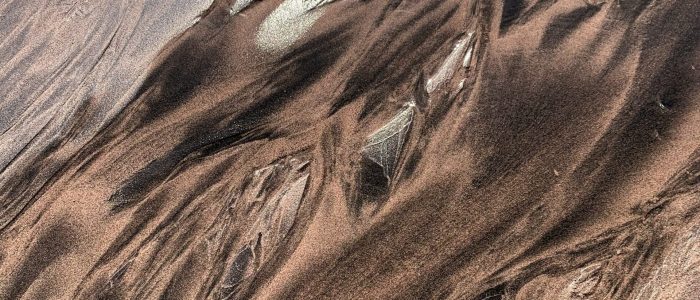Life Cycle Assessment (LCA) and Environmental Product Declaration (EPD)
Determine and improve your products’ environmental performance and gain a competitive edge.













In today's environmentally conscious market, understanding and communicating the environmental impact of products is essential.
A Life Cycle Assessment (LCA) provides a comprehensive analysis of a product’s environmental impacts throughout its entire life cycle—from raw material extraction to end-of-life disposal.
An Environmental Product Declaration (EPD) is a type III Environmental Declaration according to ISO 14025 standard and essentially based on life cycle assessment. An EPD transparently communicates comparable and third-party verified data about products and services’ environmental performances.
Services
Life cycle assessment (LCA)
Identify relevant impacts
Evaluate environmental impacts throughout the product’s entire life cycle, from raw materials and manufacturing to distribution, use, and end-of-life.
Impact categories
Assess effects in various impact categories, including resource use, emissions, and various ecological consequences.
Standards compliance
Follow international standards, such as ISO 14040/14044 and PAS 2050 for reliable and comparable assessments.

EPD compilation
EPD compilation
Prepare data collection forms. Assist your team in collecting and organising data for accurate assessments.
Regulatory complience
Carry out calculations to ensure compliance with EN 15804+A2:2019, ISO 14025, and ISO 21930 standards.
EPD documentation
Prepare both the non-public background report and the public EPD document, summarizing LCA results.

Verification and publishing
Third-party verification
Facilitate independent verification by accredited third parties to validate LCA and EPD accuracy.
EPD publishing
Publish the EPD with recognised programme operator to ensure international validity of the EPD.

Post-EPD support
Making sense
Assist in making sense of the results and help to determine the focus areas for improvement.
Impact reduction strategies
Identify opportunities to reduce environmental impacts based on calculation findings, guiding continuous improvement efforts.

Real Impact.Measurable Results.
See exactly where your emissions come from — and what to do about them. Our Climate Impact Assessment delivers actionable insights, regulatory alignment, and clear reduction pathways tailored to your business.
alignment with GHG Protocol and CSRD requirements
of users report improved clarity in climate-related decisions
visibility into Scope 1, 2, and 3 emissions (up to)
Who benefits?
For those who want to back sustainability claims with data and use them to grow.

Your company
Product Differentiation
Stay in line with market expectations by providing transparent and verified environmental data for your products.
Market Expansion
Access new opportunities in markets with stringent environmental requirements.

Your clients
Project Eligibility
Help your clients meet external requirements and earn sustainability certifications by supplying EPD-verified materials.
Market Demands
Support your clients’ commitment to sustainable practices and align with evolving procurement standards.

Manufacturers and producers
Product Differentiation
Meet the growing market demand regarding verified environmental declarations.
Market Expansion
Access new markets with stringent environmental requirements.

Construction and building material suppliers
Project Eligibility
Supply materials for projects requiring EPDs for sustainability certifications.
Client Requirements
Meet the demands of clients who focus on sustainable building practices.

Export-oriented companies
Competitive Edge
Position products favorably where environmental declarations influence procurement decisions.
Regulatory Compliance
Comply with environmental regulations in international markets.
Life Cycle Assessment and Environmental Product Declaration
Sustinere assists companies in determining the environmental impacts of their products or services by conducting Life Cycle Assessments and compiling Environmental Product Declarations.

Why it matters?
Because measuring your impact is the first step to improving it.

Market access
Enhance export opportunities
Several countries, especially in Europe, already require EPDs for construction materials. This trend is growing fast.
Preferred supplier status
Become a supplier of choice for projects seeking sustainability certifications like BREEAM, LEED or DGNB.

Competitive advantage
Increase visibility
Have your products listed in public EPD databases, making them easily accessible to (potential) clients.
Build trust
Provide transparent and verified environmental data to customers, enhancing credibility and stakeholder confidence.

Environmental responsibility
Identify improvement areas
Use life cycle assessment to first identify impacts on different environmental parameters and then determine key areas where the impact can be reduced.
Align with your and your stakeholder sustainability goals
Align with corporate sustainability initiatives and meet stakeholder expectations for transparency.

Regulatory Compliance
Meet the requirements from the industry standards
Comply with international standards such as EN 15804+A2:2019, ISO 14025, and ISO 14040/14044.
Prepare for future regulations
Stay in-line with the current and ahead of upcoming environmental regulations in key markets, ensuring uninterrupted market access.

Our process
Goal and scope
Project Scoping
Define the objectives and scope of the analysis, including the intended use and audience.
System Boundaries
Establish the boundaries of the product life cycle to be assessed (e.g., cradle-to-gate, cradle-to-grave), ensuring alignment with relevant standards.
Functional Unit
Determine the functional unit for the assessment (e.g., 1 m³ of product), serving as a reference for all calculations.
Lifecycle inventory
Joint Effort
Work closely with your team to prepare data collection forms and assist you to collect detailed data on raw materials, energy consumption, emissions, waste generation, and other relevant inputs and outputs throughout the life cycle stages.
Life cycle impact assessment
Impact Calculation
Analyse the collected data using specialised LCA software (e.g., One Click LCA) and the latest scientific databases like Ecoinvent.
Environmental Impact Categories
Assess environmental impacts across various categories such as global warming potential, ozone depletion, acidification, eutrophication, and resource depletion.
Interpretation and reporting
Result Analysis
Interpret the LCA results to identify significant environmental aspects and potential areas for improvement.
Reporting
Prepare a comprehensive LCA report detailing methodology, data sources, assumptions, results, and interpretations.
Quality Assurance
Conduct internal reviews to verify the accuracy and consistency of the assessment.
EPD compilation and publishing (If applicable)
EPD Documentation
Summarise the LCA results in a public EPD document, following the guidelines of the relevant program operator (e.g., RTS EPD) and standards.
Background Report
Prepare a non-public background report containing detailed technical information and calculation justifications for verification purposes.
Third-Party Verification
Coordinate with an accredited third-party verifier to validate the EPD, ensuring it meets all requirements and standards.
Certification and Publication
Facilitate the certification process and publish the verified EPD in a recognized database, making it accessible to stakeholders.

Why choose Sustinere?
Expertise in LCA and EPD
Experienced Professionals
A team with extensive experience in conducting LCAs and preparing EPDs across various industries.
International Standards Compliance
Adherence to Recognized Frameworks
Assessments based on sector standards (e.g. ISO 14040/14044).
Reliable and Comparable Assessments
Credible Results
Ensure the assessments meet requirements from standards as well as market practices to ensure credibility and comparability.
Customised Solutions
Tailored Approach
Custom solutions to meet specific company needs and product characteristics.
Comprehensive Support
End-to-End Service
From data collection to verification and reporting, providing full support throughout the process.
